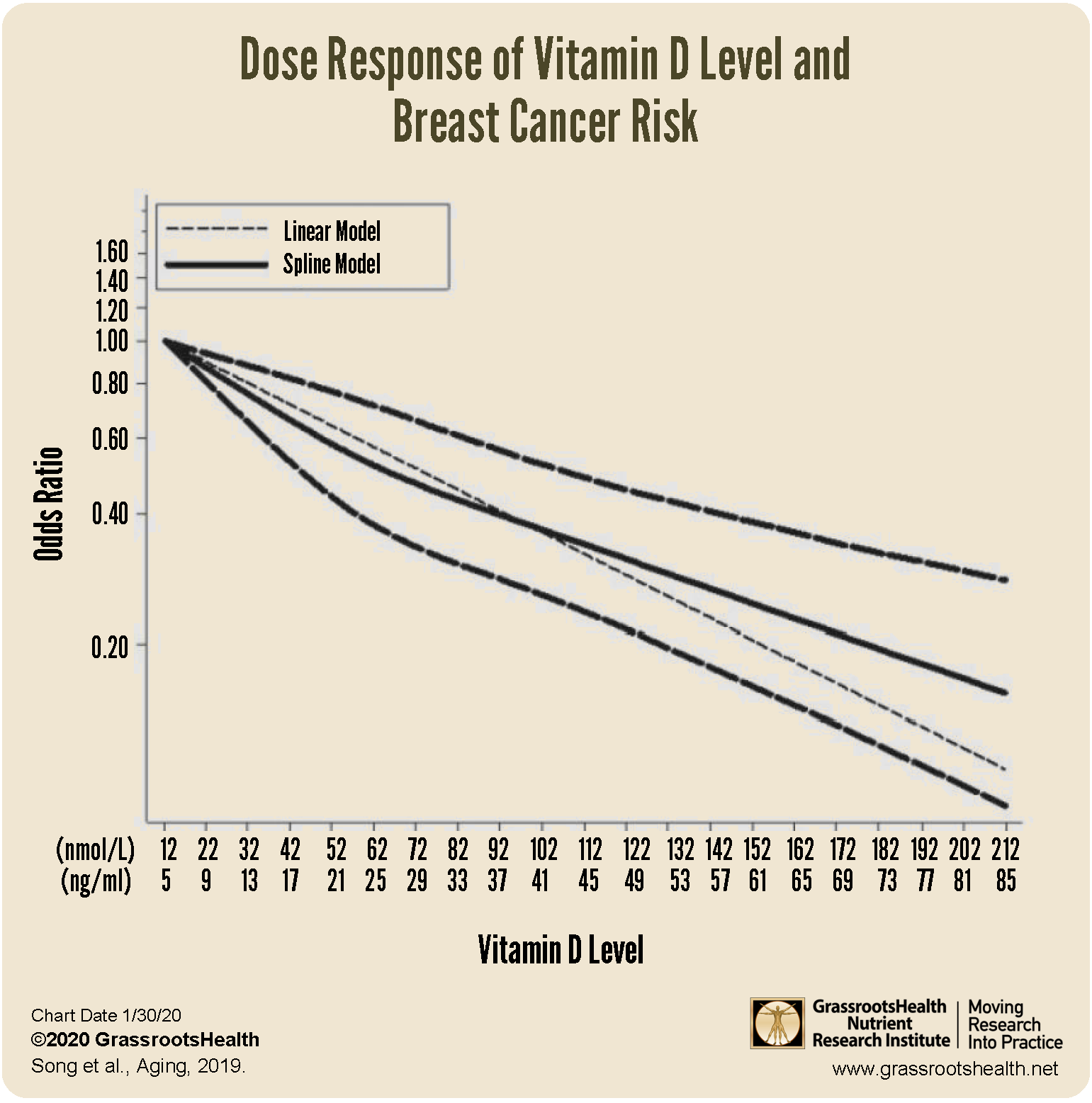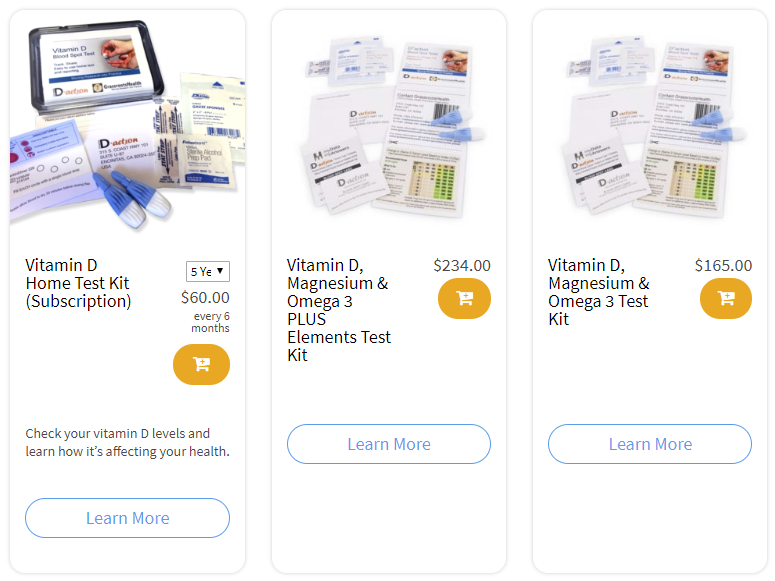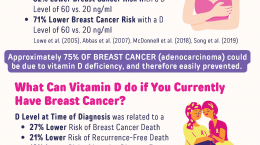Published on January 31, 2020
Breast, lung, and colorectal cancer account for 50% of all new cancer diagnoses in women and breast cancer accounts for 30% of these newly diagnosed cancer cases. It is also one of the most readily preventable cancers.
A paper published by GrassrootsHealth found an 80% lower incidence of breast cancer in women with vitamin D levels of at least 60 ng/ml compared to women with levels below 20 ng/ml. Average blood levels of vitamin D in the United States are approximately 24 ng/ml, well below the scientists’ recommended range of 40-60 ng/ml (100-150 nmol/L).
Higher Levels of Vitamin D Associated with Reduced Risk of Breast Cancer — Again
 A meta-analysis by Song et al. (2019) looked at the data of 70 observational studies, including the GrassrootsHealth study, and performed statistical analyses to determine if a relationship exists between vitamin D status and vitamin D intake and risk of developing breast cancer. Results indicated that vitamin D status was inversely related to breast cancer risk, but vitamin D intake from the studies included was not.
A meta-analysis by Song et al. (2019) looked at the data of 70 observational studies, including the GrassrootsHealth study, and performed statistical analyses to determine if a relationship exists between vitamin D status and vitamin D intake and risk of developing breast cancer. Results indicated that vitamin D status was inversely related to breast cancer risk, but vitamin D intake from the studies included was not.
The combined results of 40 studies that reported vitamin D levels suggest a 6% lower risk of developing breast cancer for every 2 ng/ml (5 nmol/L) increase in blood vitamin D levels, with an even greater risk reduction from 9 studies in Asia.
From 15 studies reporting vitamin D intake, intake in increments of 400 IU/day was not found to be associated with a reduced risk for developing breast cancer; except in Asian and pre-menopausal women. The researchers attributed this association to higher levels of reproductive hormone in pre-menopausal women and a possible genetic variation in Asian women associated with breast cancer risk.
Serum vitamin D levels can be tested through GrassrootsHealth’s vitamin D test kits.
The chart above shows the dose-response relationship observed between vitamin D status and risk of developing breast cancer. In the linear model (straight, short dashed line), every 2 ng/ml (5 nmol/l) increase in blood vitamin D corresponded with a 6% reduced risk of developing breast cancer.
A following post will take a look at how the results from this analysis compare to those seen in the GrassrootsHealth cohort.
Could Improving Your Vitamin D Level Decrease Your Risk of Cancer?
Make sure you know your vitamin D level, and take steps to keep it within a target of 40-60 ng/ml or 100-150 nmol/L! Through GrassrootsHealth Nutrient Research Institute, you can also test your essential elements magnesium, copper, zinc and selenium, toxins such as lead, mercury and cadmium, as well as your omega-3 levels, inflammation levels and thyroid stimulating hormone (TSH) level. Find out your levels today! Log on to the test selection page (click the link below) to get your tests and see for yourself if your levels can be improved.
Make sure you track your results before and after, about every 6 months!
Click Here to Access the Test Page
How can I track my nutrient intake and levels over time?
To help you track your supplement use and nutrient levels, GrassrootsHealth has created an online tracking system called myData-myAnswers. For each specific supplement, you can track what days you take it, how much, and many other details. This will help you know your true supplemental intake and what patterns of use work for you to reach and maintain optimum nutrient levels. Check it out today!








